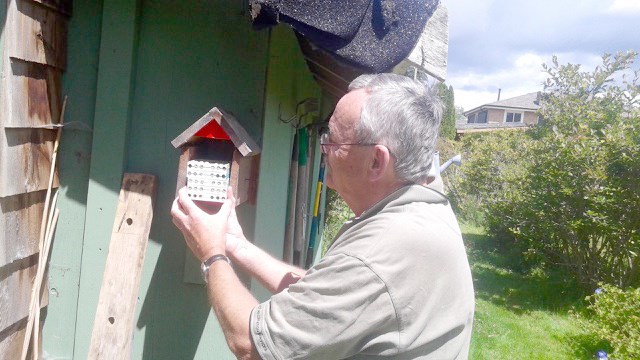There is a lot of concern about theft of vegetables from community gardens within the City of Richmond.
Even our very own volunteer-managed Paulik Park continues to experience theft of perennial plants, from time to time.
There are a lot of assumptions out there as to who is doing the pilfering from community plots. Until there are quantifiable facts available to the public, what can the average citizen and groups like Richmond Garden Club do?
The key to changing mindsets, cultural practices, in my opinion, is continual communication and education to make everyone aware of the results of taking someone’s hard-earned harvest for themselves.
The anger, frustration, feelings of disrespect, by community gardeners and volunteers leaves a bad taste in our mouths.
With the movement towards growing our own food and the lack of garden space in many of our homes, community gardens have become very important.
Richmond Garden Club is looking for ways to increase awareness of respecting community garden spaces. Many of our members take their love of gardening into other educational opportunities within our city.
Gary Lake, a member of our garden club, volunteers in the Richmond Schoolyard Project, an organization led by chef Ian Lai, who initially started the program in 2006 to teach children where their food comes from.
I spoke to Lake about this very valuable teaching opportunity. He is very passionate about educating young people to understand all about the food cycle, about how to grow food, how to be respectful of other people’s gardens and also how to be responsible for the environment.
These children also learn about the value of eating local produce!
Lake teaches the program at two Richmond elementary schools, throughout the entire school year. Some of the activities he does with the children depend a lot on their grade level.
For example, in the fall, the children harvest squash grown in their school’s garden beds. They then make squash soup!
Lake uses this time to talk about different classes of vegetables — a botany lesson for the older children.
He teaches the children about the distance fruits and vegetables travel to get to their tables.
Produce that has traveled far can present environmental issues.
The children learn how to harvest mason bees in November and December. The mason bees are in the pupae stage inside their little houses. The children separate the pupae from the mud.
Lake finds this a great time to talk about the value of bees and the different types of bees.
When the weather allows the students to go outside, he talks about using the right soil.
He teaches them the difference between dirt and compost. Along with water and sunshine, you need good soil to grow healthy produce.
During the growing season, Lake teaches the students to work in their school’s garden beds. He first helps them to understand what is a weed and talks about seed germination.
There are so many science lessons that can be taught during all of the students’ gardening activities, but the most important values he teaches is to have respect for their gardens and for each other’s gardens!
Richmond Garden Club members are passionate about teaching the love and respect of gardening to their children and grandchildren. We even have a young granddaughter who loves attending our garden club meetings with her grandmother!
Lake’s and the Richmond Garden Club’s work with young people should help develop a more respectful environment.
Lynda Pasacreta is the current president of the Richmond Garden Club. For more information on how to join the volunteer club, email [email protected], or visit RichmondGardenClub.ca.


.jpg;w=120;h=80;mode=crop)
